Past Speakers
Kyle Parker
Monday, December 17, 2018
Topic: The Magnitsky Act and its Impact
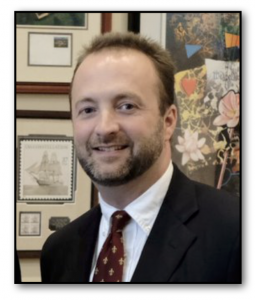 Kyle Parker, Chief of Staff of the U.S. Helsinki Commission, was jointly appointed on January 3, 2018 by U.S. Senators Roger Wicker and Ben Cardin, Chairman and Ranking Member, respectively.
Kyle Parker, Chief of Staff of the U.S. Helsinki Commission, was jointly appointed on January 3, 2018 by U.S. Senators Roger Wicker and Ben Cardin, Chairman and Ranking Member, respectively.
Prior to his appointment to the Commission, Kyle served on the House Foreign Affairs Committee as Ranking Member Eliot Engel’s senior advisor overseeing U.S. foreign policy toward the 50 countries and three international organizations covered by the Department of State’s Bureau of European and Eurasian Affairs. From 2006 to 2014, Kyle served as Policy Advisor for Eurasia at the U.S. Helsinki Commission under the Chairmanships of Sam Brownback, Alcee Hastings, Ben Cardin, and Chris Smith. Before entering government, Kyle spent eight years at the American Foreign Policy Council managing high-level political exchanges with Russia, Ukraine, and China.
Kyle’s work on the Magnitsky Act, a landmark law redefining human rights advocacy around the world, is featured in a New York Times bestseller, and his expertise on Russia has been quoted by the Wall Street Journal, Washington Post, CNN, Fox News, NPR, and foreign media outlets. Kyle is a graduate of the University of Maine and speaks fluent Russian.
Listen to this Presentation
Click on the play arrow below to listen to this presentation now. You may need to click twice on the arrow to start the audio.
If you prefer to download the MP3 audio file to your computer for later listening, click here (or right click then "Save Target As" or "Save Link As"). Please note that the downloadable file will be quite large and may take a long time to download depending on the speed of your connection to the internet.
Gary Samore
Monday, November 12, 2018
Topic: Love and Fury: Trump takes on North Korea and Iran
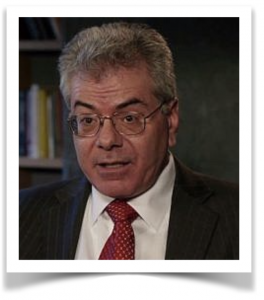 Gary Samore is Professor of the Practice of Politics at Brandeis University and Senior Executive Director of the Crown Center for Middle East Studies. He is also a Senior Fellow at the Belfer Center for Science and International Affairs, where he previously served as Executive Director for Research. He was President Obama’s White House Coordinator for Arms Control and Weapons of Mass Destruction from 2009 to 2013 and Senior Director for Nonproliferation and Export Controls for President Clinton from 1996 to 2001. He was also worked at the Department of State, the Council on Foreign Relations, the International Institute for Strategic Studies and the MacArthur Foundation. He graduated from Harvard University with a PhD in Government in 1984.
Gary Samore is Professor of the Practice of Politics at Brandeis University and Senior Executive Director of the Crown Center for Middle East Studies. He is also a Senior Fellow at the Belfer Center for Science and International Affairs, where he previously served as Executive Director for Research. He was President Obama’s White House Coordinator for Arms Control and Weapons of Mass Destruction from 2009 to 2013 and Senior Director for Nonproliferation and Export Controls for President Clinton from 1996 to 2001. He was also worked at the Department of State, the Council on Foreign Relations, the International Institute for Strategic Studies and the MacArthur Foundation. He graduated from Harvard University with a PhD in Government in 1984.
Listen to this Presentation
Click on the play arrow below to listen to this presentation now. You may need to click twice on the arrow to start the audio.
If you prefer to download the MP3 audio file to your computer for later listening, click here (or right click then "Save Target As" or "Save Link As"). Please note that the downloadable file will be quite large and may take a long time to download depending on the speed of your connection to the internet.
Sarah Mendelson
Monday, October 29, 2018
Topic: Combating Human Trafficking

Ambassador Sarah E. Mendelson is Distinguished Service Professor of Public Policy at Carnegie Mellon University and Head of Carnegie Mellon’s Heinz College in Washington DC. She served as the US Representative to the Economic and Social Council at the United Nations until January 20, 2017. Confirmed by the Senate in October 2015, she was the USUN lead on international development, human rights, and humanitarian affairs. There she oversaw campaigns to get country-specific resolutions passed in the General Assembly and to get NGOs, including the Committee to Protect Journalists, accredited to the UN. She led efforts to elevate the issue of combating human trafficking and was senior lead for the President’s Summit on Refugees. Prior to her appointment as Ambassador, she served as a Deputy Assistant Administrator at USAID from 2010-2014 where she was the Agency lead on democracy, human rights, and governance. A long time policy entrepreneur, she has spent over two decades working on development and human rights as a scholar and practitioner including in Moscow with the National Democratic Institute, on the faculty of the Fletcher School at Tufts University, and over a decade as senior adviser and inaugural director of the Human Rights Initiative at the Center for Strategic and International Studies. There she also worked as a senior fellow in the Russia and Eurasia Program where she over saw focus groups, public opinion surveys, and social marketing campaigns in Russia on a range of issues. A member of the Council on Foreign Relations and the author of over 70 scholarly and public policy publications, Ambassador Mendelson received her BA in History from Yale University and her PhD in political science from Columbia University.
Listen to this Presentation
Click on the play arrow below to listen to this presentation now. You may need to click twice on the arrow to start the audio.
If you prefer to download the MP3 audio file to your computer for later listening, click here (or right click then "Save Target As" or "Save Link As"). Please note that the downloadable file will be quite large and may take a long time to download depending on the speed of your connection to the internet.
James N. Miller
Monday, October 8, 2018
Topic: Managing US Relations with China and Russia in Unsettled - and Unsettling - Times
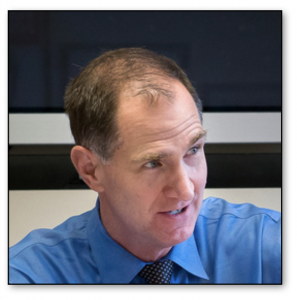 Dr. James N. Miller is a Senior Fellow at Harvard Kennedy School’s Belfer Center for Science and International Affairs, where he leads a project on preventing war among great powers.
Dr. James N. Miller is a Senior Fellow at Harvard Kennedy School’s Belfer Center for Science and International Affairs, where he leads a project on preventing war among great powers.
Prior to his appointment at the Center in October 2014, he worked as Under Secretary of Defense for Policy, advising Secretaries Leon Panetta and Chuck Hagel on strategy, policy, and operations, and serving as the department’s deputy for National Security Council policy-making and crisis management. Miller served previously as Principal Deputy Under Secretary of Defense for Policy under Secretary Robert Gates, guiding reviews of nuclear policy and missile defense, and leading national defense strategies for space and cyberspace. He was awarded the Department of Defense’s highest civilian award, the Medal for Distinguished Public Service, four times.
Miller served previously in government as Deputy Assistant Secretary of Defense and as senior staff for the House Armed Services Committee. He also served as Senior Vice President and Director of Studies at the Center for a New American Security, Senior Vice President at Hicks and Associates, Inc., and assistant professor at Duke University. A member of the Council on Foreign Relations and the International Institute for Strategic Studies, Miller is President of Adaptive Strategies, LLC. He serves on the Defense Science Board, the Atlantic Council’s Board of Directors, and the Board of Advisors for the Center for a New American Security.
Miller received a B.A. degree with honors in economics from Stanford University, and Master’s and Ph.D. degrees in public policy from Harvard Kennedy School. He was a research fellow with the Belfer Center’s International Security Program from 1985-88.
Ambassador Michael McFaul
Tuesday, September 4, 2018
Topic: Russia
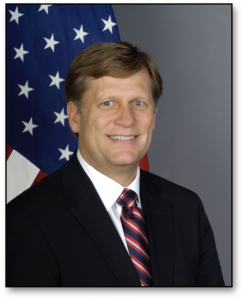 Michael McFaul is Professor of Political Science, Director and Senior Fellow at the Freeman Spogli Institute for International Studies, and the Peter and Helen Bing Senior Fellow at the Hoover Institution. He joined the Stanford faculty in 1995. He is also an analyst for NBC News and a contributing columnist to The Washington Post. Dr. McFaul served for five years in the Obama administration, first as Special Assistant to the President and Senior Director for Russian and Eurasian Affairs at the National Security Council at the White House (2009-2012), and then as U.S. Ambassador to the Russian Federation (2012-2014).
Michael McFaul is Professor of Political Science, Director and Senior Fellow at the Freeman Spogli Institute for International Studies, and the Peter and Helen Bing Senior Fellow at the Hoover Institution. He joined the Stanford faculty in 1995. He is also an analyst for NBC News and a contributing columnist to The Washington Post. Dr. McFaul served for five years in the Obama administration, first as Special Assistant to the President and Senior Director for Russian and Eurasian Affairs at the National Security Council at the White House (2009-2012), and then as U.S. Ambassador to the Russian Federation (2012-2014).
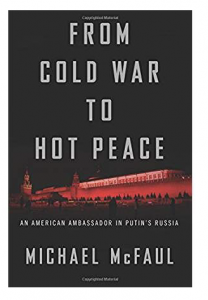 He is the author of several books, including Advancing Democracy Abroad: Why We Should, How We Can; with Kathryn Stoner,
He is the author of several books, including Advancing Democracy Abroad: Why We Should, How We Can; with Kathryn Stoner,
Transitions To Democracy: A Comparative Perspective; with James Goldgeier, Power and Purpose: American Policy toward Russia after the Cold War; and Russia’s Unfinished Revolution: Political Change from Gorbachev to Putin. His most recent is From Cold War to Hot Peace, the story of his experience as US Ambassador to Russia, and his fraught relationship with Putin. His current research interests include American foreign policy, great power relations, and the relationship between democracy and development.
Dr. McFaul was born and raised in Montana. He received his B.A. in International Relations and Slavic Languages and his M.A. in Soviet and East European Studies from Stanford University in 1986. As a Rhodes Scholar, he completed his D. Phil. in International Relations at Oxford University in 1991.
Jack David & Melanie Kirkpatrick
Monday, August 13, 2018
Topic: North Korea—Perils and Unhappy Options.
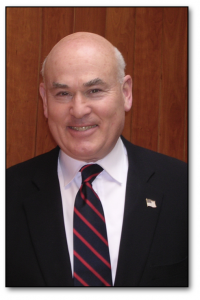 Jack David is a senior fellow in national security at the Hudson Institute in Washington, D.C. and a trustee of Hudson as well as a trustee of the Committee for Human Rights in North Korea
Jack David is a senior fellow in national security at the Hudson Institute in Washington, D.C. and a trustee of Hudson as well as a trustee of the Committee for Human Rights in North Korea
He served as Deputy Assistant Secretary of Defense for Combating Weapons of Mass Destruction and Negotiations Policy from 2004 to 2006. He was responsible for developing and advising on plans and policies relating to nonproliferation and counterproliferation of WMD, including issues related to North Korea and Iran. He is a recipient of the Secretary of Defense Outstanding Public Service Award.
Prior to that he practiced law in New York City for 28 years until 1995. His legal practice focused on representation of foreign and domestic clients in predominantly civil litigation. He also represented foreign and domestic clients on corporate matters, contracts, acquisitions, and business reorganizations. He holds a B.A. from Rutgers University and a law degree from Columbia University.
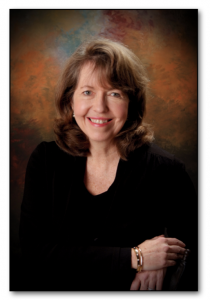 Melanie Kirkpatrick is a writer-journalist based in Connecticut and a senior fellow at the Hudson Institute, a Washington think tank. She contributes reviews and commentary to various publications, including the opinion pages of The Wall Street Journal, for which she worked for 30 years. She is the author of Thanksgiving: The Holiday at the Heart of the American Experience (2016) and Escape from North Korea: The Untold Story of Asia’s Underground Railroad (2012). WORLD Magazine named Escape from North Koreathe best book of 2013.
Melanie Kirkpatrick is a writer-journalist based in Connecticut and a senior fellow at the Hudson Institute, a Washington think tank. She contributes reviews and commentary to various publications, including the opinion pages of The Wall Street Journal, for which she worked for 30 years. She is the author of Thanksgiving: The Holiday at the Heart of the American Experience (2016) and Escape from North Korea: The Untold Story of Asia’s Underground Railroad (2012). WORLD Magazine named Escape from North Koreathe best book of 2013.
At The Wall Street Journal, Melanie was a longtime member of the editorial board. She began her Journal career as a copy editor in Hong Kong, rising to become op-ed editor and then deputy editor of the newspaper’s opinion pages. Early in her career she worked at the Buffalo Courier-Express and at Time-Life Educational Systems in Tokyo, where she free-lanced as a host for an NHK-TV show for children.
She received a bachelor’s degree from Princeton University and a master’s degree in English from the University of Toronto. She was a Gannett Newspaper Foundation Fellow in Asian studies at the University of Hawaii. She is a member of the Council on Foreign Relations; a trustee emerita of Princeton in Asia, an internship program in Asia for young graduates of American universities; a member of the advisory board of the Human Freedom Program of the George W. Bush Institute; a member of the Trollope Society; and a director of the America for Bulgaria Foundation.
Walter Slocombe
Monday, July 16, 2018
Topic: Diplomacy or Force: The Ambiguous Lessons of History
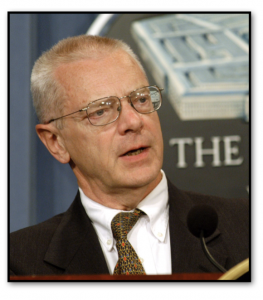 Walter Becker Slocombe is a former Under Secretary of Defense for Policy (1994–2001)[1] and was the Senior Advisor for Security and Defence to the Coalition Provisional Authority in Baghdad (2003).
Walter Becker Slocombe is a former Under Secretary of Defense for Policy (1994–2001)[1] and was the Senior Advisor for Security and Defence to the Coalition Provisional Authority in Baghdad (2003).
A lawyer and career federal official, Slocombe joined the staff of the National Security Council in 1969. Prior to that, he worked as a law clerk for Supreme Court Justice Abe Fortas.[2] He is a four-time recipient of an award for Distinguished Public Service and a member of the Council on Foreign Relations. He currently practices law with the Washington firm of Caplin & Drysdale.
Slocombe received a B.A. from Princeton University in 1963, where he received the Moses Taylor Pyne Honor Prize, the highest general distinction conferred on an undergraduate. Slocombe was also a Rhodes scholar, studying at the University of Oxford from 1963-1965. He graduated summa cum laude from Harvard Law School in 1968 and was admitted to the bar in 1970.
US Government Service:
- Committee on the Intelligence Capabilities of the United States Regarding Weapons of Mass Destruction (2004)
- Senior advisor for the Coalition Provisional Authority (2003)
- Under Secretary of Defense for Policy (1994-2001)
- Deputy Under Secretary of Defense for Policy (1979-1981), (1993-1994)
- Deputy Assistant Secretary for International Security Affairs (1977-1979)
Senator Angus King
Friday, July 6, 2018 at 7 PM (Camden Opera House)
Topic: Experience on the Senate Intelligence Committee and its Investigation of Russian Meddling
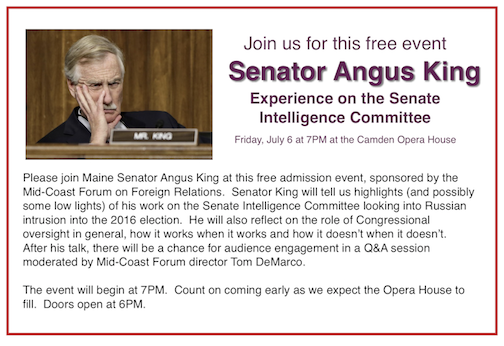
Chris Miller
Monday, May 14, 2018
Topic: Putonomics: Power and Money in Resurgent Russia
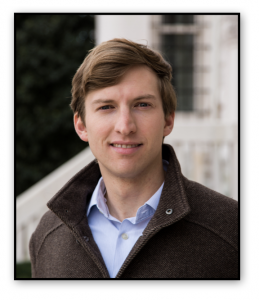
Chris Miller is Assistant Professor of International History at the Fletcher School of Law and Diplomacy at Tufts University.
Academic Research: His research examines Russian history, political economy, and foreign policy. His first book, The Struggle to Save the Soviet Economy: Mikhail Gorbachev and the Collapse of the USSR, was published in 2016. His second book, Putinomics: Power and Money in Resurgent Russia was published in 2018.
His next book project will examine the history of Russian diplomacy and power projection in Asia, from the time of the tsars to the present day. In addition, Chris has published multiple scholarly articles on the history of Russian economic policy, Russian intellectual history, foreign investment, and Russian-Chinese relations.
Policy Research: Dr. Miller currently serves as Director of the Eurasia Program at the Foreign Policy Research Institute. He writes regularly on Russian foreign and economic policy, with a focus on Russia and Asia. He also directs FPRI’s research into Russian-North Korean relations and the Baltic and Black Sea regions. Previously, he was a fellow at the German Marshall Fund’s Transatlantic Academy, where he researched Russia’s use of economic tools in foreign policy. Chris also studies contemporary Chinese political economy, and has published on topics such as China’s debt burden and its Belt and Road Initiative.
Teaching: At Fletcher, Chris teaches courses on US-Russian relations and the history of US foreign relations.
Previously, he served as Associate Director of the Brady-Johnson Program in Grand Strategy at Yale University, where he co-taught a course in Grand Strategy as well as teaching history seminars on the history of financial crises and on Russian economic history. Before that, Chris served as a lecturer in history at the New Economic School in Moscow.
Chris received his PhD and MA from Yale University and his BA from Harvard University.
Aurora Almendral
Monday, April 30, 2018
Topic: The Philippines and the Age of Populism
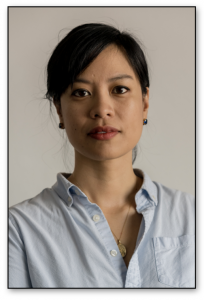 Aurora Almendral is a freelance foreign correspondent, currently a stringer for The New York Times in Manila, a contributing writer for National Geographic Magazine and the producer/reporter for NBC News, covering breaking news in the Philippines and working on features for TV, as well as reporting short digital documentaries around the world.
Aurora Almendral is a freelance foreign correspondent, currently a stringer for The New York Times in Manila, a contributing writer for National Geographic Magazine and the producer/reporter for NBC News, covering breaking news in the Philippines and working on features for TV, as well as reporting short digital documentaries around the world.
Aurora has reported on disaster, climate change, human trafficking, immigration, economic development, politics, crime and culture. She was among the first foreign journalists to cover the violent drug war in the Philippines, and has gone on to produce expansive work on the subject, from its effects on communities to a profile on the 5-star general running the drug war. Aurora co-directed a 22-minute documentary tracing the human cost of the brutal policy. Aurora’s work has been published or broadcast in the New York Times, BBC World Service, National Geographic Magazine, PRI’s The World, NPR News, NBC News, NBC Left Field and VICE News, among others.
In 2018, Aurora’s work was recognized by an Overseas Press Club Andelman Award for International Reporting and a Pictures of the Year International award for Documentary Journalism. In 2017, she received a regional Edward R. Murrow Award for News Documentary.
Originally from New York, Aurora graduated magna cum laude in economics and anthropology. She was a Fulbright scholar to Spain and Morocco. Before becoming a journalist, she worked in socioeconomic development at the United Nations and at a startup in New York. She speaks English natively, as well as Filipino, Spanish, Moroccan Arabic and Modern Standard Arabic.
Dominic Tierney
Monday, March 5, 2018
Topic: America in an Era of Unwinnable Wars
Why has America stopped winning wars? For nearly a century, up until the end of World War II in 1945, the United States enjoyed a Golden Age of decisive military triumphs. But the decades since have been a Dark Age of failures and stalemates-in Korea, Vietnam, Iraq, and Afghanistan. Dominic Tierney reveals how Washington struggled to adapt to the new era of intractable civil conflicts. Weaving together compelling stories of military catastrophe and heroism, Tierney illuminates not only how America can handle the toughest crisis of all–battlefield failure–but also how the United States can return to the path of victory.
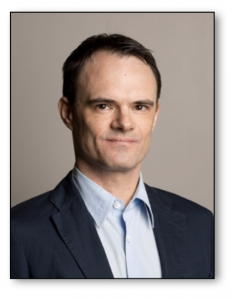 Dominic Tierney is associate professor of political science at Swarthmore, a senior fellow at the Foreign Policy Research Institute, and a contributing writer at The Atlantic.
Dominic Tierney is associate professor of political science at Swarthmore, a senior fellow at the Foreign Policy Research Institute, and a contributing writer at The Atlantic.
He completed his PhD in international politics at Oxford University in 2003, and was a post-doctoral fellow at the Mershon Center at Ohio State University and the Olin Institute at Harvard University before coming to Swarthmore in 2005. In 2008-2009, he was a research fellow at the John F. Kennedy School of Government at Harvard.
He has published four books:
Failing to Win: Perceptions of Victory and Defeat in International Politics (Harvard University Press, 2006), with Dominic Johnson, which won the International Studies Association award for the best book published in 2006, and was nominated for the best book of the decade.
FDR and the Spanish Civil War: Neutrality and Commitment in the Struggle that Divided America (Duke University Press, 2007), which was described by Diplomatic HistoryJanuary 2009) as “a model of superb diplomatic history.”
How We Fight: Crusades, Quagmires, and the American Way of War (Little, Brown, & Co., 2010), which Ambassador James Dobbins, former Assistant Secretary of State for Europe, described as “A great theme, beautifully written and compellingly organized, it’s a fitting update to Russell Weigley’s classic [The American Way of War] and an important contribution to a national debate over the war in Afghanistan which is only gathering steam.”
His latest book is The Right Way to Lose a War: America in an Age of Unwinnable Conflicts (Little, Brown, & Co., 2015).
His work has also appeared in The New York Times, The Los Angeles Times, NPR, and various academic journals.
Trudy Rubin
Monday, February 5, 2018 at 11:30AM
Topic: Are we headed for the next Middle East War?: The end of ISIS, the rise of Iran, and the murky future of Syria and Iraq.
 Trudy Rubin is the foreign affairs columnist for The Philadelphia Inquirer and travels abroad frequently to South Asia and the Middle East. Her “Worldview” column appears twice weekly in the Inquirer and runs regularly in many other U.S. newspapers. She has special expertise on Afghanistan, Pakistan, Iran, Iraq, the Israeli-Palestinian issue, international terrorism, and U.S. foreign policy. She visited Afghanistan and Pakistan twice in 2009, most recently for three weeks in November; between 2003 and 2008 she made ten trips to Iraq and two to Iran and also wrote from Israel, the West Bank, Gaza, Syria, Egypt, Lebanon, Turkey, China and South Korea.
Trudy Rubin is the foreign affairs columnist for The Philadelphia Inquirer and travels abroad frequently to South Asia and the Middle East. Her “Worldview” column appears twice weekly in the Inquirer and runs regularly in many other U.S. newspapers. She has special expertise on Afghanistan, Pakistan, Iran, Iraq, the Israeli-Palestinian issue, international terrorism, and U.S. foreign policy. She visited Afghanistan and Pakistan twice in 2009, most recently for three weeks in November; between 2003 and 2008 she made ten trips to Iraq and two to Iran and also wrote from Israel, the West Bank, Gaza, Syria, Egypt, Lebanon, Turkey, China and South Korea.
Before coming to Inquirer in December 1983, Rubin was Middle East correspondent for the Christian Science Monitor, covering Israel and the Arab world, and lived in Jerusalem and Beirut.
Earlier, she was a national correspondent for The Monitor, covering election campaigns and national political and social issues. Prior to that she was a staff writer on American politics for The Economist of London. During the Prague Spring of 1968, she worked in Prague, Czechoslovakia as a radio correspondent.
In 2001, Rubin was a finalist for the Pulitzer Prize in commentary for her columns on the Middle East. She is also the winner of the 2008 Edward Weintal prize for international reporting.
In 1993, she served as a Jefferson Fellow at the East-West Center in Honolulu. She was invited as an exchange journalist to the Moscow News in Moscow in 1990. She spent 1975-6 as a fellow at the Center for International Affairs at Harvard University as a participant in the program for senior diplomats started by Henry Kissinger. In 1974-5, she was an Alicia Patterson Foundation Fellow in Cairo and Beirut.
Rubin is a graduate of Smith College and the London School of Economics. Follow Rubin on Twitter @trudyrubin.
Kerry Emanuel
Monday, January 15, 2018
Topic: Hurricanes!
 Kerry Emanuel is a prominent meteorologist and climate scientist who specializes in moist convection in the atmosphere, and tropical cyclones. His research interests focus on tropical meteorology and climate, with a specialty in hurricane physics. His interests also include cumulus convection, the role of clouds, water vapor, and upper-ocean mixing in regulation of climate, and advanced methods of sampling the atmosphere in aid of numerical weather prediction.
Kerry Emanuel is a prominent meteorologist and climate scientist who specializes in moist convection in the atmosphere, and tropical cyclones. His research interests focus on tropical meteorology and climate, with a specialty in hurricane physics. His interests also include cumulus convection, the role of clouds, water vapor, and upper-ocean mixing in regulation of climate, and advanced methods of sampling the atmosphere in aid of numerical weather prediction.
Emanuel received an S.B. degree in Earth and Planetary Sciences and a Ph.D. in Meteorology (1978) both from MIT. After completing his doctorate, he joined the faculty of the Atmospheric Sciences department of the University of California at Los Angeles where he remained for three years, with a brief hiatus filming tornadoes in Oklahoma and Texas.
In 1981 he joined the faculty of the Department of Meteorology at MIT and was promoted to Full Professor in 1987 in what had since becomes the Department of Earth, Atmospheric and Planetary Sciences (EAPS). In 1989 he assumed directorship of EAPS Center for Meteorology and Physical Oceanography, a post he held until 1997. Subsequently he chaired the EAPS Program in Atmospheres, Oceans, and Climate from 2009 to 2012. He is co-founder of the MIT Lorenz Center, a climate think tank which fosters creative approaches to learning how climate works.
Professor Emanuel is the author or co-author of over 200 peer-reviewed scientific papers, and three books, including Divine Wind: The History and Science of Hurricanes, published by Oxford University Press, and What We Know about Climate Change, published by the MIT Press.